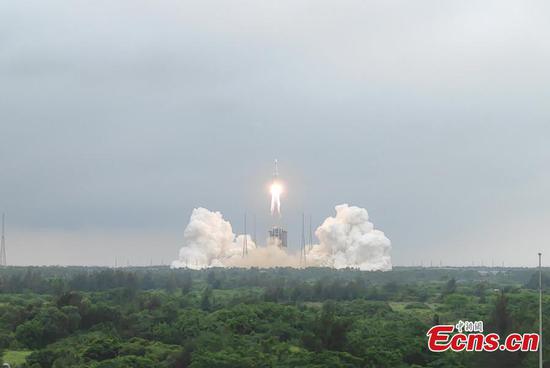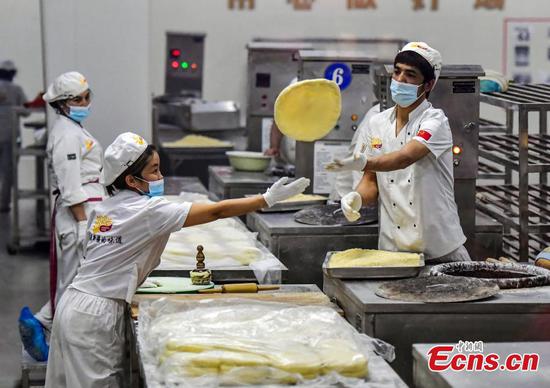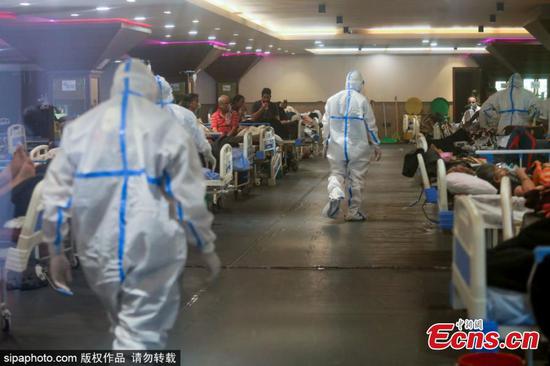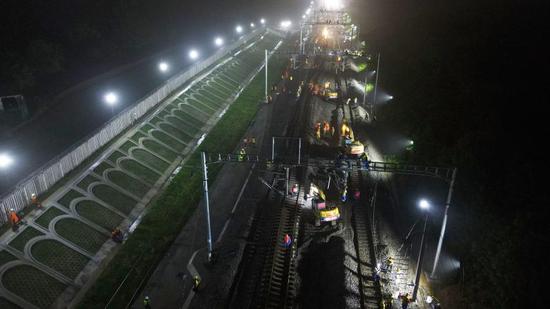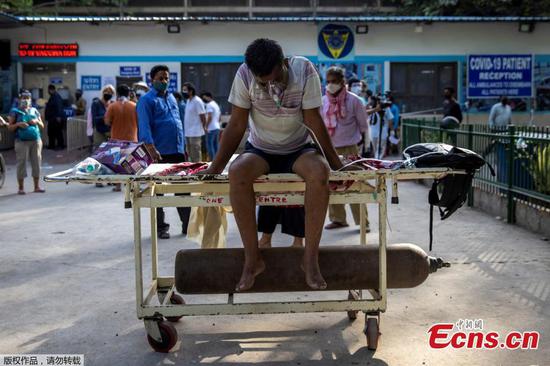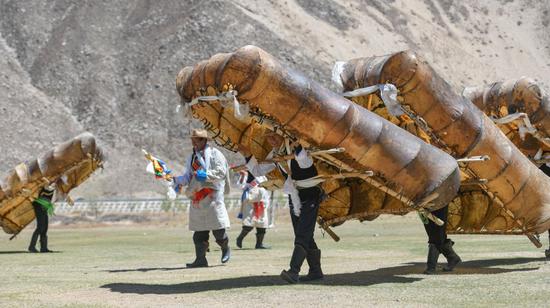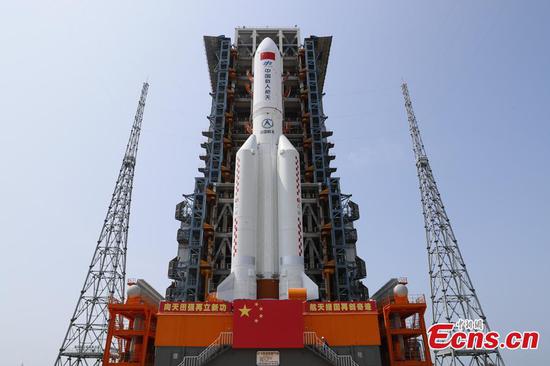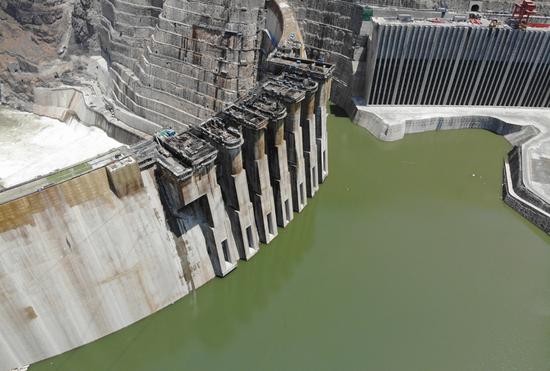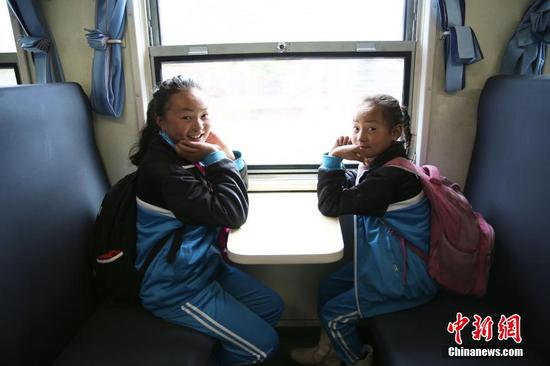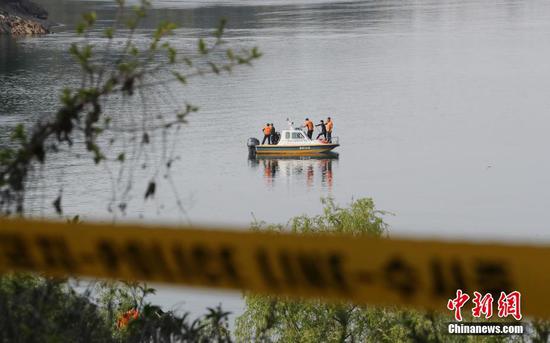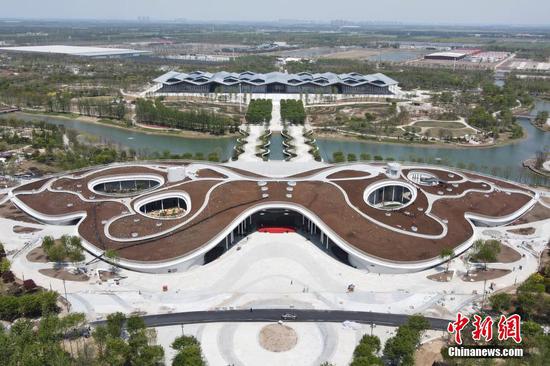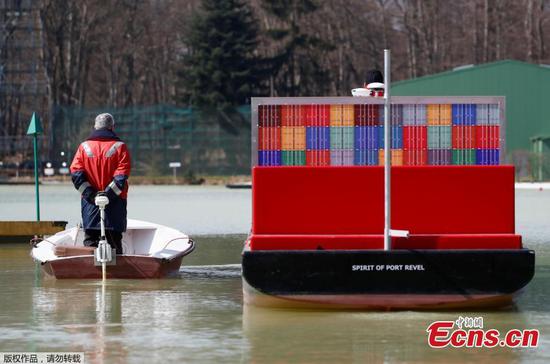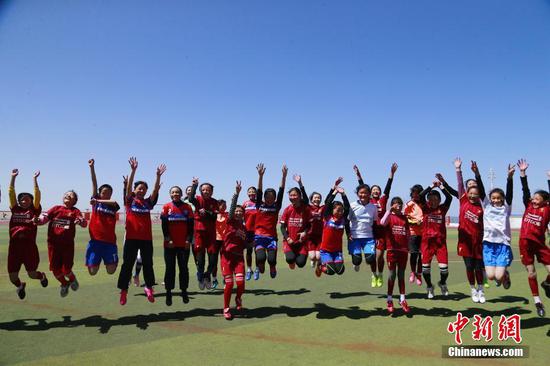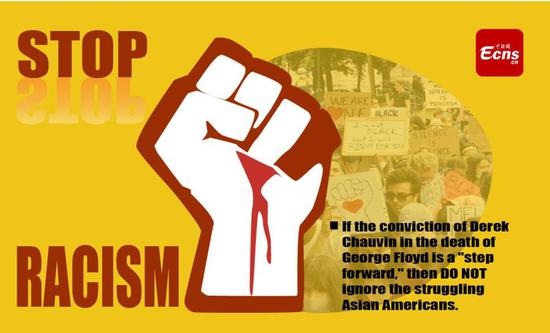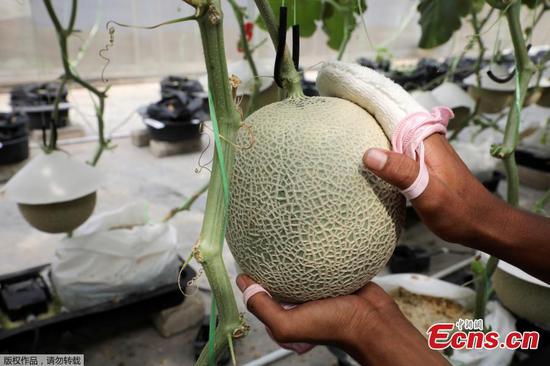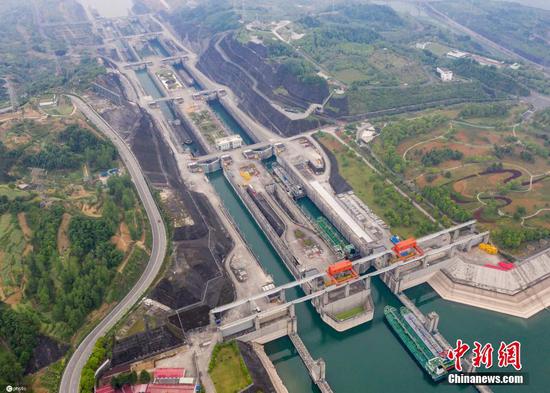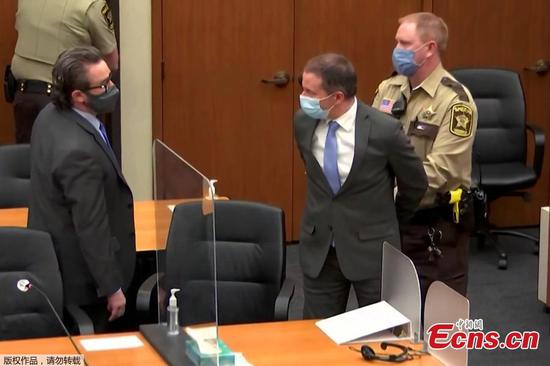Nearing 100 days in office, U.S. President Joe Biden is tasked with handling a crisis on the U.S. southern border that shows no signs of abating.
Migrants are illegally pouring over the U.S. southern border, and unaccompanied children are surging through at record levels. Critics call it a humanitarian disaster -- people are being crammed into places like the one in Donna, Texas, which is supposed to house a few hundred people under COVID restrictions, but now houses 4,000.
The Biden administration is scrambling to contain the problem, which critics blast as a major blight on the new president's first 100 days in office.
"I think that it is clear that it has become a crisis ... in terms of the conditions that some migrants, particularly children, are being held in," Jessica Bolter, a policy analyst at the Migration Policy Institute, told Xinhua.
Brookings Institution Senior Fellow Darrell West told Xinhua: "It is a complicated issue for the administration," adding that while Biden wants to treat people humanely, he "doesn't want a flood of new people crossing illegally."
Some experts said that a host of issues, including hurricanes, poverty and violence, are contributing to the surge. But others maintain the problem is because Biden has changed border policies.
"Biden's first 100 days have been an all-out aggressive assault on America," Republican Strategist and TV news personality Ford O'Connell told Xinhua, adding that the border crisis is one that Biden himself created.
"Democrats see this as a two-year window to transform America into a progressive state," O'Connell said.
In a recent OP-ED on Fox New's website, Sen. Thom Tillis noted that he saw with his own eyes during last month's visit to the border "the surge of unaccompanied minors, the subpar living conditions of migrants, and the state of an overworked and overwhelmed Border Patrol." He added that these have "been direct consequences of the Biden administration's failed policies."
"Through their words and actions, the Biden administration sent a clear signal that our border is open for anyone and everyone, and the world took notice," Tillis argued.
Mexico's President Andres Manuel Lopez Obrador also chimed in recently, arguing that "expectations were created that with the government of President Biden there would be a better treatment of migrants. And this has caused Central American migrants, and also from our country, wanting to cross the border thinking that it is easier to do so."
For its part, the White House said it's seeking a fix that can involve both parties.
WHAT MIGRANTS WILL FACE
Once they have crossed the border, Bolter said, there are different processes for single adult migrants, those traveling as families, and unaccompanied children to go through.
According to the expert, for single adults, most -- 87 percent in March -- are immediately expelled to Mexico or another country. Those who aren't first processed by border authorities are then transferred to U.S. Immigration and Customs Enforcement (ICE) custody and placed in removal proceedings before an immigration court. Most are detained in immigration detention while they are in immigration court proceedings, but some may be released for humanitarian reasons.
For families, less than half -- 33 percent in March -- are immediately expelled to Mexico or another country. Those who are not expelled are processed by border authorities in a facility like those in Donna, Texas, Bolter noted.
Some are placed into expedited removal proceedings and briefly detained in ICE family detention facilities before being either removed or released to seek asylum. Others are placed into long-term removal proceedings and quickly released into the community for the duration of their immigration court proceedings, he explained.
From there, NGOs typically help released families arrange travel to reunite with family or friends in other parts of the United States, Bolter noted.
For unaccompanied children, they are not being immediately expelled under the Biden administration. Once they have been processed by border authorities, they are transferred to the custody of the Office of Refugee Resettlement (ORR), which is within the federal Department of Health and Human Services, Bolter said.
They are transferred to one of three types of facilities, ranging from smaller facilities with extensive services available, like case management and education, to larger, emergency facilities with services limited to meals, basic health care, and minimal recreation, Bolter said.
For children held in all these types of facilities, the goal is to release them as quickly as possible to a sponsor (most often a relative) in the United States whom they can live with while they go through proceedings in immigration court, Bolter noted.









